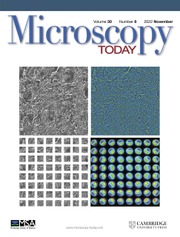Dear Dr. Price,
I was shocked and saddened by the information contained in your March 2021 Editorial and totally agree with your conclusion that “it is incumbent upon all of us to maintain a high ethical compass.” I was fortunate to participate in the Coast Guard Academy's annual Ethics Forum. This forum was part of the Academy's effort to assure that their graduates performed to very high ethical standards. A keynote talk by an admiral concluded with “do what is right, always do what is right.” Unfortunately, my 60-plus years in science, including service as a journal editor, professional society president, and a participant on numerous review panels, have demonstrated that, as you implied, there is a growing trend toward improper image and data manipulation. The reason for this trend may be that our society has championed a decreasing emphasis on the important difference between right and wrong. I'll use four examples that illustrate how one inadvertently lowers their ethical standards.
Years ago, we were trying to characterize the effect of heat treatment on the microstructure of an aluminum alloy. I asked a “very good” technician to examine multiple areas and determine the typical microstructure. The technician replied “tell me what you want to see and I'll find it.” I think this was an effort to please, and pleasing friends and leaders often drives toward compromise. Toward the end of my career, I was on a review panel focused on the future of tritium production in the US, and a company executive pushing for a contract showed their “typical results” from an extensive test program. When repeatedly questioned, the executive finally admitted that the “typical result” was the only fully successful result from the test program. Ethical standards were lowered in hopes of obtaining a large contract and financial gain. On another occasion, a panel instituted to select a major national awardee was requested by a high government official to compromise the selection process to assure a politically correct awardee was chosen. Finally, just recently, a young engineering graduate with five years of industrial experience went to law school and was shocked to hear a law professor state that a lawyer shouldn't seek the correct answer but should focus on the answer that best helps the client. Neither the technician, the executive, the government official, nor the law school professor thought they were compromising their ethics. They simply hadn't considered the personal responsibility to do what is right but had assumed an attitude of convenience and self-help.
I sincerely hope that the young people reading your editorial are as appalled as I am. If not, we are entering a trend in science that is not only disturbing, it is destructive. High ethical standards are the answer to many problems facing our society, and we need to demonstrate adherence to such standards.
Sincerely,
Mac Louthan





